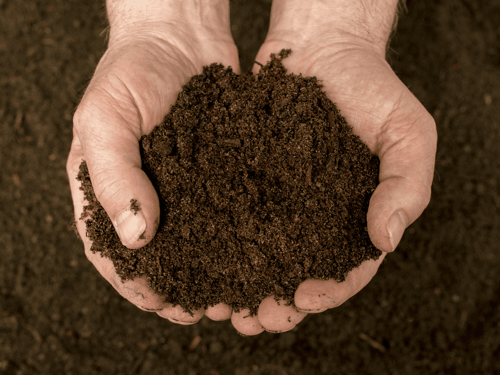
WasteMINZ’s Organic Materials Sector Group is encouraging the public to learn about the benefits of composting this International Compost Awareness Week (7-13 May).
International Compost Awareness Week (ICAW) is an annual international event that celebrates the benefits of composting and the role which compost plays in creating healthier soil and healthier food.
This year's theme, "For Healthier Soil, Healthier Food...Compost," highlights the importance of composting as a sustainable source of fertiliser and critical addition of soil organic matter for our gardens and crops, while also significantly reducing waste, reducing greenhouse gas emissions, protecting biodiversity and improving soil health. Without healthy soils, producing sufficient healthy food to feed our populations is at risk.
"International Compost Awareness Week is an important event that brings attention to the benefits of composting for our communities and our planet," said Chris Purchas, chair of the WasteMINZ Organic Materials sector group steering committee. "This year's theme, 'For Healthier Soil, Healthier Food...Compost,' highlights the important role that composting plays in creating healthy soils and promoting sustainable agriculture. We encourage everyone to participate in ICAW and learn more about how composting can benefit our communities and the environment."
Compost is an excellent source of organic matter, which provides a range of benefits to soil health. It improves soil structure, increases water-holding capacity, reduces erosion, and supports the growth of beneficial microorganisms. Compost also provides a slow-release source of nutrients to plants, which helps to reduce the need for chemical fertilizers and pesticides. As a result, composting helps to create healthier soils that support the growth of healthier food.
Composting is not just good for the soil – it’s a great way to break down non-avoidable food waste, keep organic waste out of landfills, and make your garden more productive.
Note about the International Compost Alliance:
WasteMINZ is part of the International Compost Alliance, which also includes:
The Association for Renewable Energy and Clean Technology (REA);
- The Australian Organics Recycling Association (AORA);
- Compost Council of Canada (CCC);
- European Compost Network (ECN);
- International Solid Waste Association (ISWA);
- CRÉ - Composting and Anaerobic Digestion Association of Ireland;
- The United States Composting Council (USCC); and
- The Compost Research & Education Foundation (CREF)
The purpose of the alliance is for organics recycling organisations around the world to work collaboratively to maximise the recycling of organic wastes and advance the manufacturing of certified, high-quality compost to benefit the environment, society and our members.
Currently, over 83 million tonnes of biowaste are recycled every year around the world. Not only does this recycle over 1 million tonnes of plant macro-nutrients, but, through storing carbon in soil and offsetting fertilizer use, it reduces greenhouse gas emissions by 9 million tonnes of carbon dioxide equivalents – an equivalent of driving an average car for 36 billion kilometres (23 billion miles); almost 95 thousand times the distance between the earth and the moon!
Despite our current success globally, our annual potential could be increased over 12-fold if all the world’s unavoidable organic residuals were collected separately and composted.





